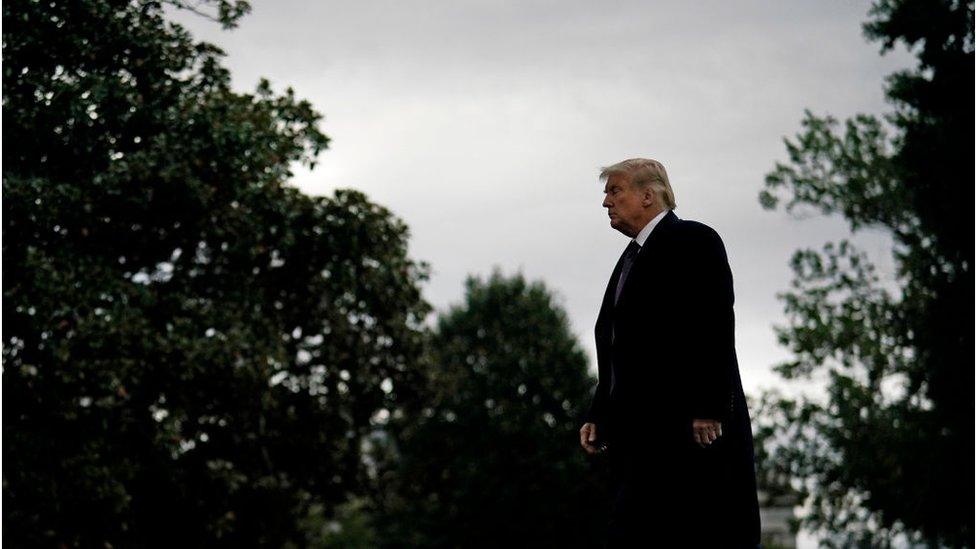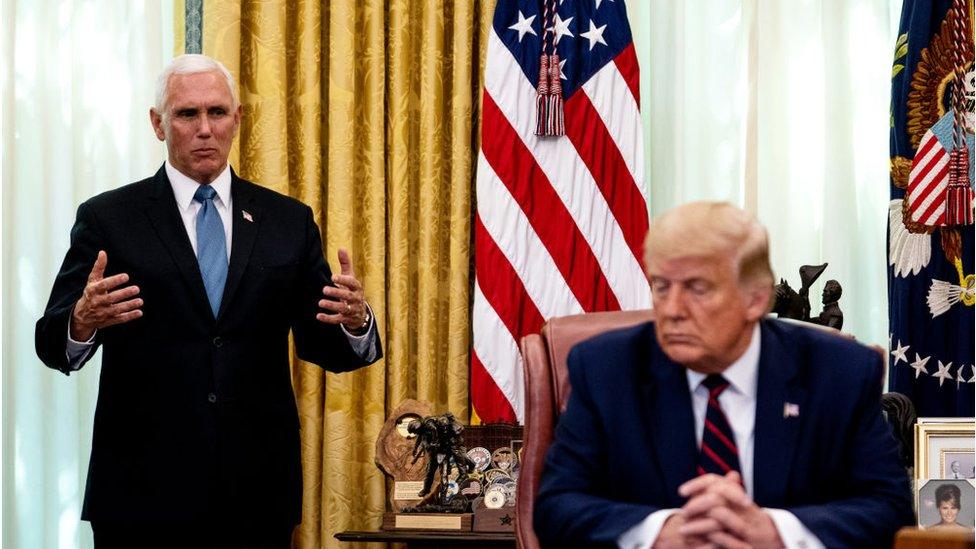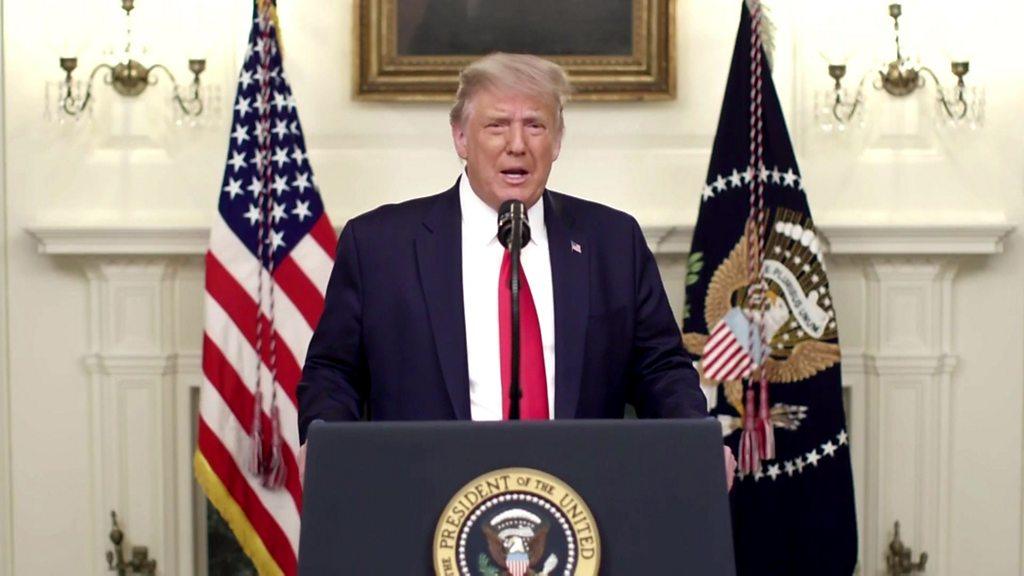Covid and Trump: What happens when a US president is too sick to work?
- Published

Coronavirus presents a novel situation, but protecting the office of the presidency is something US lawmakers have planned for - and managed - before.
While President Donald Trump could be one of the millions who have recovered from Covid-19 with mild or no symptoms, he could also require more serious treatment that would render him unable to do his job.
Here's a look at what happens if he does.
What does the Constitution's 25th Amendment say?
First, let's lay out our cast of characters.
In addition to the President, we've got Vice-President Mike Pence, Speaker of the House of Representatives Nancy Pelosi - the Democratic leader - and Republican Senator Chuck Grassley, who as President Pro Tempore heads the Senate in the absence of the vice-president.

If the president becomes unable to perform his role, the Constitution places the "powers and duties" of the office into the vice-president's hands.
The 25th Amendment, ratified in the late 60s, makes this process clearer.
In the present situation, here's how it could play out. Suppose Mr Trump learns he will need to undergo major hospital treatment for Covid-19 that would mean he could not work.
He must then pen a letter to Mrs Pelosi and Mr Grassley to inform both chambers of Congress that he's unable to serve. At this point, the vice-president becomes the acting president.

Vice-President Mike Pence is next in line to become if Mr Trump is incapacitated
Mr Trump will need to send Congress another letter when he returns to say he's ready to reassume the role.
But what happens if Mr Trump isn't physically able to send this letter?
Then, that responsibility will fall to Mr Pence, plus a majority of Mr Trump's cabinet leaders. This group will then write to Mrs Pelosi and Mr Grassley to say that Mr Pence is immediately becoming acting-president.
Again, Mr Trump will need to write the lawmakers when he returns to say he is no longer incapacitated.
If Mr Pence and the cabinet disagree, then it's up to Congress to vote on whether Mr Trump is fit to retake control.
"While presidential incapacity would be a serious national situation, the government would be able to function in a largely uninterrupted way until the president is recovered," Brookings Institution Senior Fellow John Hudak explained in an analysis piece looking at this possibility earlier this summer.
Will the election be postponed if Trump is incapacitated?
It's unlikely. The US has never postponed a presidential election before.
Any decision to do so would have to come from Congress.
The Constitution granted Congress the power to set election day. Lawmakers enshrined the first Tuesday after the first Monday in November, every four years, as that day.
To change that now would mean both the House of Representatives (controlled currently by opposition Democrats) and the Senate (controlled by Mr Trump's Republicans) would need to agree on altering the law in the next 30 days.
Analysts say this outcome seems nigh-impossible given the partisan divides.
"The end of the pandemic is in sight," President Trump told a dinner on Thursday
Another possibility is that, even if Mr Trump is incapacitated on election day, his name remains on the ballot.
Yet another (albeit remote) option: The Republican National Committee could try to put a replacement candidate out there - but it's unlikely that there is enough time to do so while meeting state election deadlines.
Has a president been incapacitated before?
In 1985, when President Ronald Reagan was in hospital for cancer surgery, he placed his vice-president, George HW Bush, in charge.
In 2002 and 2007, President George W Bush did the same with his vice-president when he was sedated during routine colonoscopies.
When it comes to sudden health issues in an election year, few can match the drama that beset Teddy Roosevelt who completed an 84-minute speech after being shot in the final weeks of the 1912 campaign. He had to suspend campaigning and came in second as the Progressive candidate.
In the same election, Republican Vice-President James Sherman died just days before he and President William Howard Taft were up for re-election. Republican officials did not have enough time to name a replacement before election day - but Mr Taft eventually lost. Democrat Woodrow Wilson became president.
- Published2 October 2020
